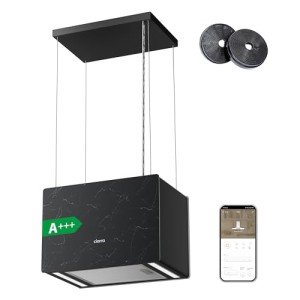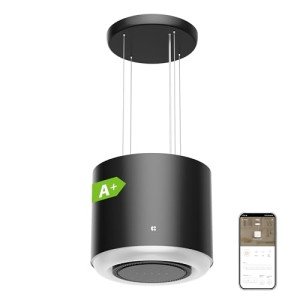Here's A Few Facts Regarding Kitchen Island Extractor
페이지 정보
작성자 Jacquelyn Clem 댓글 0건 조회 37회 작성일 25-05-20 02:04본문

The Essential Guide to Kitchen Island Extractors: A Comprehensive Overview
In modern-day kitchen style, the kitchen island cooker hoods uk has emerged as a main feature, serving both aesthetic and functional functions. To boost the cooking experience, numerous property owners are deciding for kitchen island extractors, which not just eliminate cooking smells however also include to the kitchen's total design. This article will explore various elements of kitchen island extractors, including their advantages, types, setup considerations, and upkeep. Additionally, common FAQs will likewise be addressed to provide a clearer understanding of this innovative kitchen feature.
Comprehending Kitchen Island Extractors
Kitchen island cooker extractor hood extractors are ventilation systems installed above kitchen islands that help in getting rid of smoke, steam, and odors produced throughout cooking. Unlike standard hoods that are set up versus walls, island extractors hang from the ceiling, making them perfect for open-plan designs that feature a main kitchen island.
Benefits of Kitchen Island Extractors
Improved Air Quality: Best matched for busy cooking areas, island extractors significantly enhance the air quality by straining airborne impurities.
Enhanced Aesthetics: Available in numerous designs and finishes, these extractors can complement a kitchen's decoration, including a touch of sophistication.
Area Optimization: They maximize counter space, as they do not need wall installing, enabling for more versatility in kitchen style.
Customizable: Many designs provide adjustable fan speeds, lighting features, and an option of ducted or recirculating options to fit private needs.
Types of Kitchen Island Extractors
1. Ducted Extractors
Ducted kitchen island extractors are linked to a duct system that vents air outside. They are frequently chosen for their performance in eliminating smoke and smells.
Pros:
- Better air quality
- More effective at odor elimination
- Quiet operation
Cons:
- More complex setup
- Needs structural alterations
2. Recirculating Extractors
Recirculating extractors filter air through charcoal or grease filters and return the purified air back into the kitchen. These are ideal for spaces where ductwork isn't feasible.
Pros:
- Easier setup
- Less intrusive
Cons:
- Less effective at smell elimination
- Regular filter replacements needed
3. Downdraft Extractors
Downdraft extractors are incorporated into the counter top and increase up throughout use. Although they are not as popular as traditional hoods, they are a fantastic choice for minimalistic designs.
Pros:
- Space-saving style
- Ideal for specific layouts
Cons:
- Less efficient compared to traditional extractors
- Higher setup expenses
| Type | Pros | Cons |
|---|---|---|
| Ducted | Exceptional air quality, peaceful | Complex setup |
| Recirculating | Easy setup, less invasive | Regular filter modifications required |
| Downdraft | Space-saving, smooth style | Greater costs, less efficient |
Installation Considerations
Installing a kitchen island hoods kitchen; fatahal.com, extractor requires careful preparation. Here are some important elements to keep in mind:
Height: The ideal height for installing an extractor is 30-36 inches above the cooking surface area. For gas stoves, the height needs to be closer to 36 inches.
Size: Ensure the extractor is 6-12 inches broader than the cooktop on all sides for ideal efficiency.
Ducting: If going with a ducted extractor, prepare for Island Hoods Kitchen duct positioning. This might require ceiling alterations or additional building and construction work.
Electrical Supply: Ensure compliance with regional codes and policies when setting up electrical parts for lighting and motor functions.
Style Compatibility: Consider the kitchen's overall style theme and select an extractor that harmonizes with existing aspects.
Maintenance and Care
To make sure optimal efficiency, regular upkeep of kitchen island extractors is essential. Here are some ideas:
Clean Filters Regularly: Depending on the kind of extractor fans for kitchen islands, filter cleaning or replacement ought to be done every 1-3 months.
Check the Motor: Regularly examine the motor and fan for particles build-up and ensure they are working correctly.
Lubricate Moving Parts: Lubrication will extend the life of your extractor and minimize sound levels.
Look For Duct Blockages: If you have a ducted system, regularly examine for any obstructions or damage to the ductwork.
FAQs About Kitchen Island Extractors
1. How do I choose the ideal size extractor for my kitchen?
Picking the ideal size extractor involves determining the width of your cooktop and guaranteeing the extractor is 6-12 inches broader on either side.
2. Are kitchen island extractors loud?
Most modern kitchen island extractors are designed for quiet operation, particularly at lower fan speeds. However, noise levels can differ based upon model and settings.
3. What is the average cost of a kitchen island extractor?
Prices can range from ₤ 200 to over ₤ 2,000, depending on the brand, type, and features. Installation expenses will differ based on regional labor rates and the complexity of the setup.
4. Can I install an extractor myself?
While some property owners choose for DIY setup, it is recommended to work with a professional, especially for ducted systems, to make sure safety and compliance with regional codes.
5. How frequently should I have my kitchen island extractor serviced?
An annual service by a professional is recommended for ducted systems to look for blockages, while recirculating systems ought to have filters replaced every few months.
In conclusion, kitchen island hood island ventilation hoods extractors are both practical and trendy services for contemporary cooking areas. With various types, installation factors to consider, and upkeep requirements, it's essential for property owners to inform themselves about the various choices readily available. By picking the right extractor, they can produce a pleasant cooking environment and boost the kitchen's functionality and appearance.

댓글목록
등록된 댓글이 없습니다.


